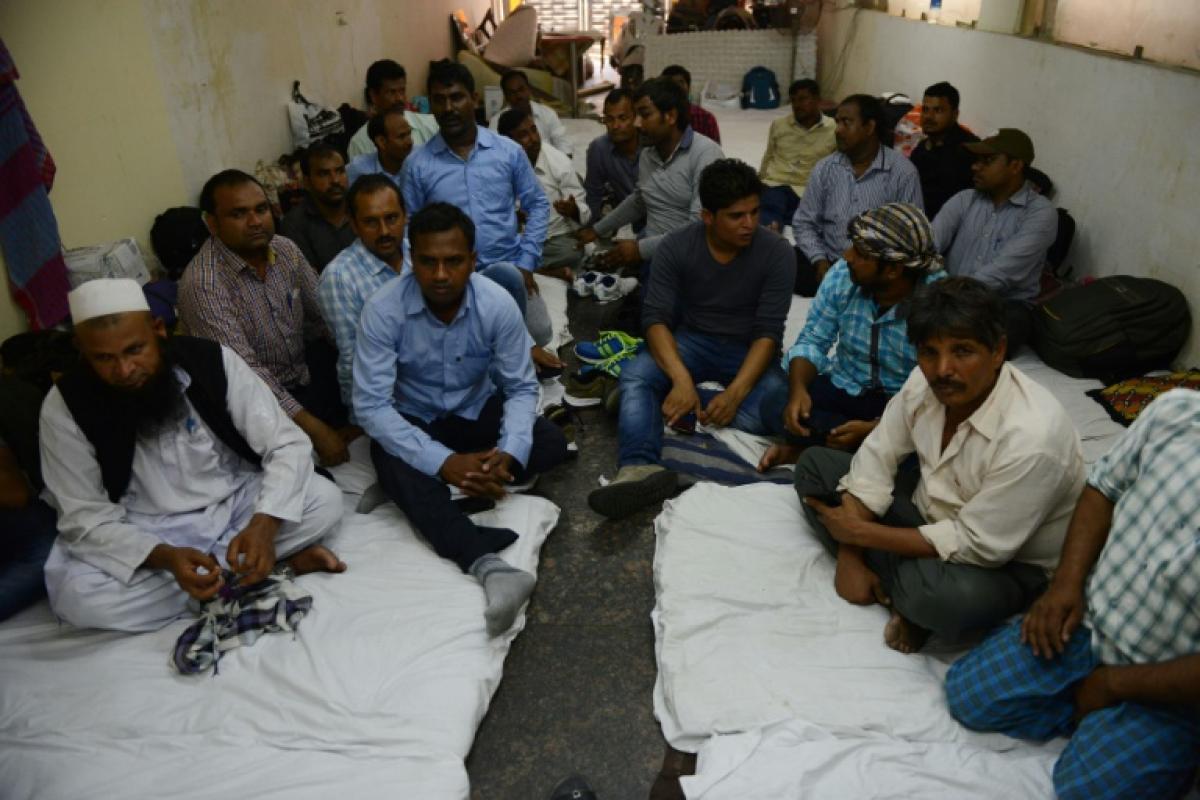Indian migrants recall Saudi nightmare, relieved to return home

They left India for Saudi Arabia with big dreams, but have returned with only harrowing tales after an oil price slump threw the economy into turmoil, leaving thousands of poor migrant labourers stranded.
New Delhi: They left India for Saudi Arabia with big dreams, but have returned with only harrowing tales after an oil price slump threw the economy into turmoil, leaving thousands of poor migrant labourers stranded.
The workers from India, Pakistan, Bangladesh and the Philippines were left destitute, without enough money to get home or even to buy food after losing their jobs.
This week around 40 workers from the impoverished Bihar finally arrived home with stories of being "left to die" by their employer Saudi Oger, the once-mighty firm led by Lebanon's billionaire former prime minister Saad Hariri.
The company, which at one time had some 50,000 workers on its payroll, was hit by a drop in income from its core construction business after Saudi Arabia delayed or cancelled projects in the face of plummeting oil revenues.
"They closed down the mess (canteen) suddenly. For three days we did not have even water to drink. There was no power either," electrician Imam Hussain told AFP after landing in New Delhi this week.
"I was even arrested because my identification documents were not renewed by my employer. The situation there was worse than hell," said the 27-year-old, who was working on the renovation of Saudi King Salman's palace in Riyadh.
Hussain was among millions of poor Asians working in the Gulf states, where human rights groups say many suffer exploitation and abuses with no channels for redress.
Under the kingdom's kafala system, most foreign workers are barred from moving to a new job without their boss's consent before their contracts end, leaving many trapped.
It has been criticised by rights groups as a form of bonded labour or even slavery.
Hussain and his fellow migrants had spent several days in Delhi as they waited to go home to Bihar, sleeping on mattresses on the floor of a budget hotel's garage and eating on a filthy, open terrace.
But their huge relief at coming home meant they barely noticed the discomfort.
"We are just so relieved to be back home finally. All we want is to see our family and start our lives afresh," said Santosh Singh, a low-wage construction labourer as he waited to board a train to his native village.
Saudi Arabia is the favoured destination for Indian labourers, with nearly three million working mainly in the construction sector.
A 2014 report by Amnesty said close to a thousand low-wage migrant labourers are provided clearance to travel to Saudi Arabia every day.
Bihar, which has some of the worst rates for poverty, malnutrition and life expectancy in the country, has the highest migration rates, according to a government report in 2007.
Many leave to escape an exploitation-ridden rural economy in the absence of any local enterprise or industry.
Migration offers an easy opportunity to the often semi-literate workforce to earn relatively good wages abroad.
"In Siwan district where I live they used to make public announcements about overseas job vacancies with the beating of the drum," said Zakir Hussain, who went to Riyadh in 2013 and was making some Rs 30,000 per month ($450) before the problems began.
"I have 15 members in my family and it (going abroad) was my only chance at a better life.
"But look what happened. I have not been paid since December. All my dreams are shattered. I just hope I will get back my dues some day," he said.
In August, the Indian foreign ministry stepped in to repatriate thousands of Indian migrant workers who did not even have money to buy their tickets.
The Saudi government then took action, providing food and medicine to Indians staying in camps while promising to provide free passage to all those who wanted to go back to India.
Saudi Arabia has also said it will handle legal claims of the Oger workers in an effort to get their money back.
Sheikh Dilsher, who worked for Oger for 18 years, is still unable to come to terms with the sudden turn his life has taken.
"I slogged all my life for them," he said, tears welling up his eyes. "But what did I get in return?
"All my benefits which come to some 42,000 Saudi riyal (around $11,200) have been withheld.
"I have no money and no hope now."











